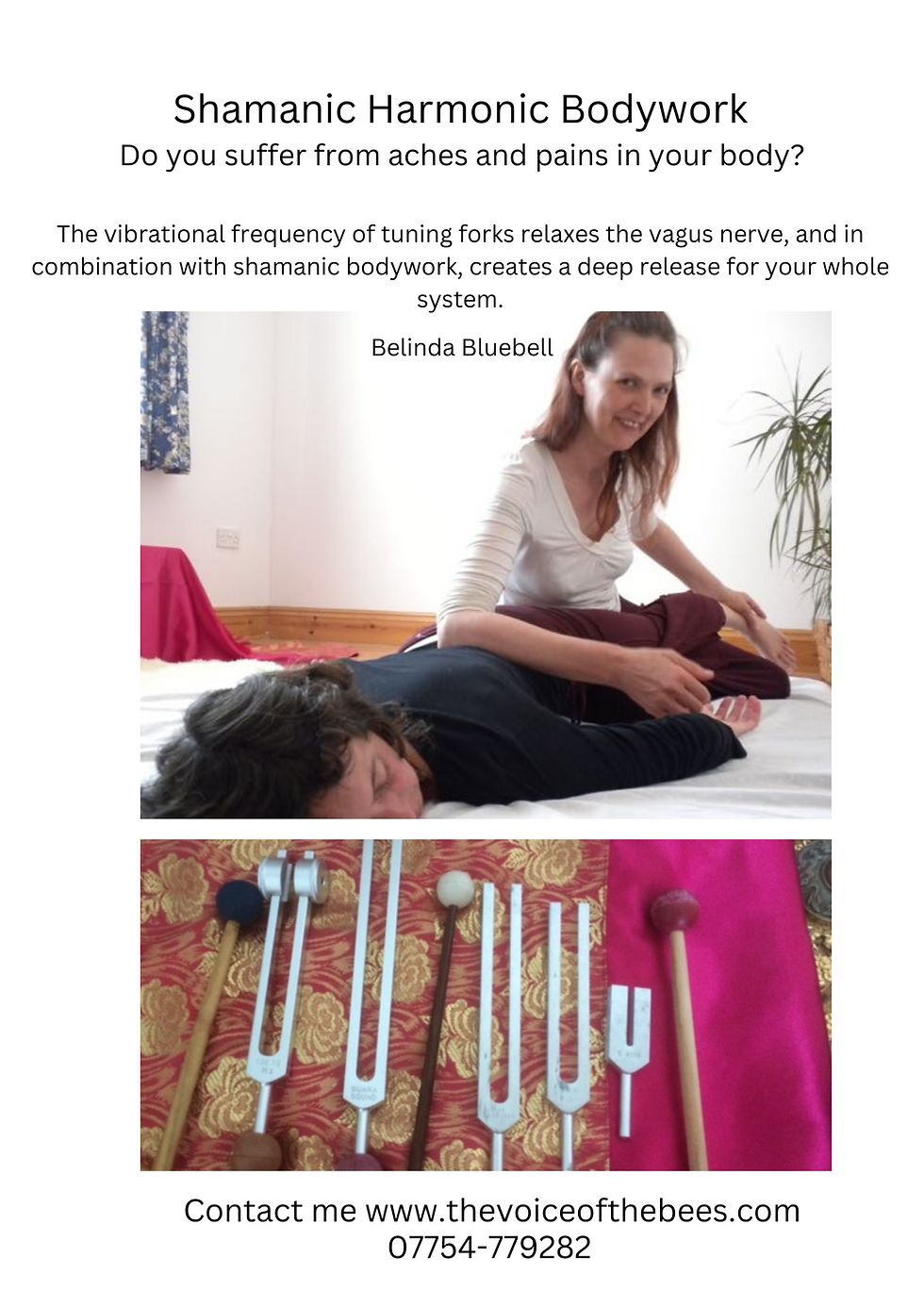Why is Pollen so important for immunity, for both humans and bees?
- bluebellinindia
- Mar 24, 2021
- 2 min read

Pollen is one of nature’s most nourishing foods and contains nearly all the nutrients that a human needs. Not only that, it’s the food of the young bee.
A working bee spends about one month collecting one teaspoon of pollen.
Where does pollen come from?
Here is a quote from the Britannica website;
“ Pollen, a mass of microspores in a seed plant appearing usually as a fine dust. Each pollen grain is a minute body, of varying shape and structure, formed in the male structures of seed-bearing plants and transported by various means (wind, water, insects, etc.) to the female structures, where fertilization occurs.” https://www.britannica.com/science/pollen.
How can Pollen help our systems?
Pollen is an energy enhancer, and an immune booster,
it fights fatigue, and is effective against a range of diseases. Not only that, Pollen contains enzymes that aid digestion, and can treat common skin conditions such as eczema.
"Bee pollen is one of the most nutrient-dense foods found in nature.
It's packed with vitamins and minerals, and it has nearly a full spectrum of essential nutrients.
It contains more protein per gram, than any other animal based food, as well as free forming amino acids. Research suggests, that it has potential anti-viral, anti-inflammatory anti-fungal
anti-caner, liver protecting and local analgesic properties." (Ben Greenfield, Boundless )
Pollen and bees
The Bees collect Pollen to feed the young bees, and each pellet contains two thousand
Flower grains. Pollen has a high percentage of protein, plus fats and minerals, starch, amino acids and beneficial bacteria.
"Bees make Bee Bread, which is a mix of fermented pollen and digestive enzymes, which the bees add from their own stomachs, this is what is fed to the baby bees.
It is a blend of light and scents of the field it contains nutrients for the body, mind and spirit"
( Jaqueline Freeman, The Song Of Increase )
Pollen comes in many colours, red, yellow, grey, according to which flower they have been collected from. Pollen from Maple, Apple, and Cherry trees is yellow, pollen from Borage is grey, and pollen from Poppies is black.
Just as with honey, Pollen is a precious commodity, and should not be exploited.
Please buy organic pollen, and use sparingly, as a daily booster you can add a few grains for your porridge, and please only buy it if it is ethically sourced. You can buy pollen at your local farmers market or health food shop, it usually has a long shelf life, and is worth paying a high price for, since it is such a precious commodity for the health and strength of the baby bees.

I highly recommend Jaqueline Freeman's book, The Song Of Increase. This book opened my eyes to the inner world of the bees.





Hi Belinda, great article, can I share it on Evolutionary Women? x